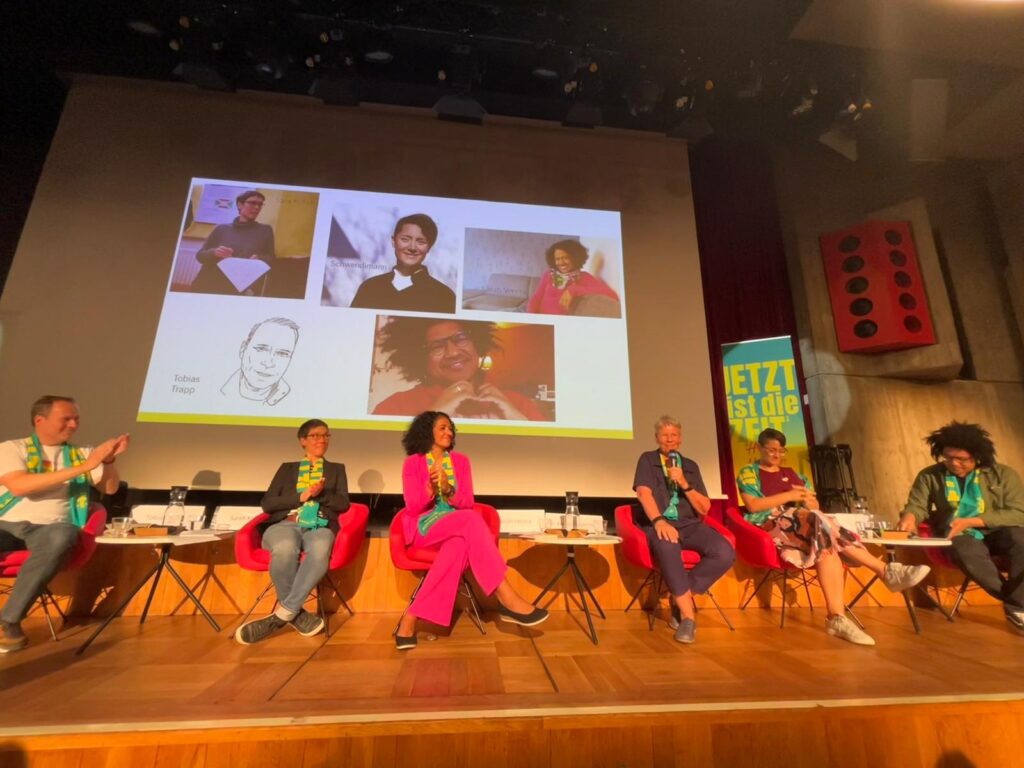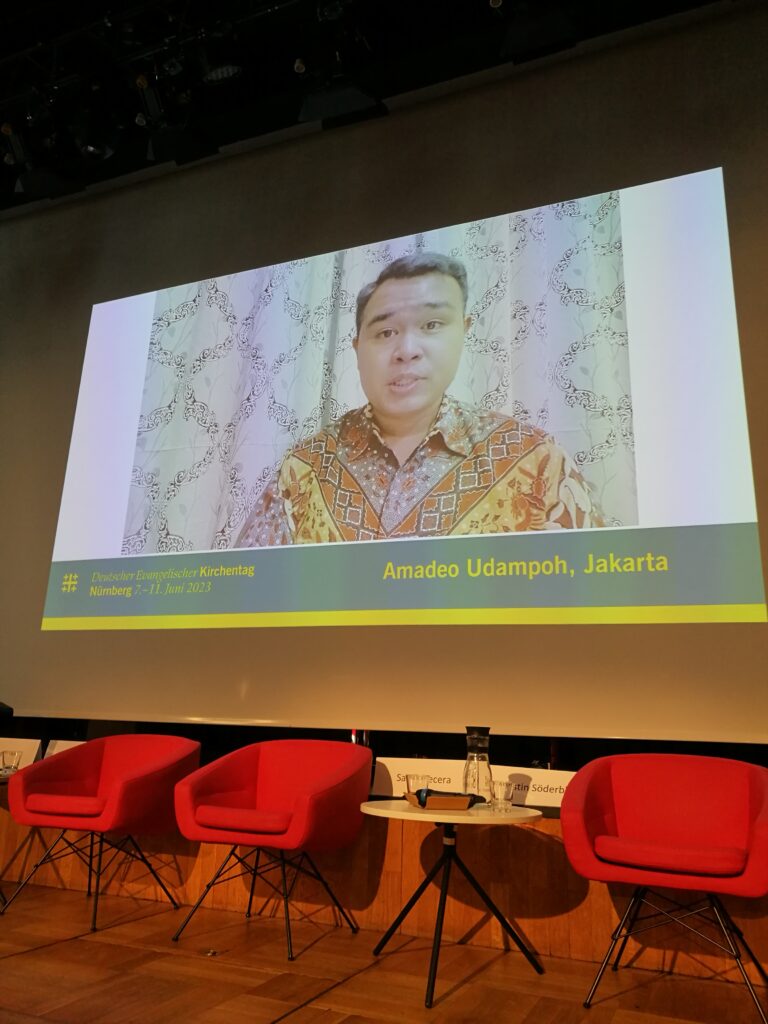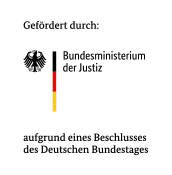Opening statement by Sarah Kohrt from the Hirschfeld Eddy Foundation at the German Protestant Kirchentag in Nuremberg on 8 June 2023 for the podium discussion “Church as a safe® space for queerness”: A discussion between religious people of colour and queer people held by the Gender Worlds and Rainbow Center at the Langwasser community building, Glogauer Str. 50, 90473 Nuremberg.
Moderator:
Dr. Kerstin Söderblom, chaplain, Protestant University Chaplaincy (ESG), Mainz
Guests:
Amadeo Udampoh, Indonesia (video statement)
Quinton Ceasar, pastor, Wiesmoor
Sarah Kohrt, LGBTIQ+ Platform for Human Rights, Hirschfeld Eddy Foundation, Berlin
Priscilla Schwendimann, pastor, Mosaic Church, Reformed Protestant congregation, Zurich
Tobias Trapp, chair, Rainbow Refugees, Mainz
Sarah Vecera, global education coordinator, focus on racism and church, United Protestant Mission, Essen
Opening statement by Sarah Kohrt, Hirschfeld Eddy Foundation
We believe in change
This is the name of a project I’m currently directing at the Hirschfeld Eddy Foundation (HES). We are working on it together with queer activists from around the world.
I’d like to introduce our work with activists from the global South by presenting eight theses:
1) There is only one world – not two
Opponents claim that religious people and LGBTIQ people make up two different worlds. Please do your part to refute this claim. Queer believers are everywhere. Being queer and being religious are both integral to the everyday lives of our project partners. But many queer people are rejected by their congregations. That leads to isolation and desolation.
For religious freedom to prevail, churches must be places of safety too.
2) Churches must be part of the solution. Right now they’re part of the problem.
Uganda recently passed the world’s most repressive law against homosexual and trans people. US-American fundamentalist evangelicals were helping to draft it back in 2009. Before the bill was brought to a vote in parliament, churches in Uganda had spoken out in favour of it.
Religion is used to justify persecution. In other countries of eastern Africa, religion is also used as a weapon against queer people.
Churches must be part of the solution here.
One solution can consist of rallying around the lowest common denominator, namely: “No violence!” Violence is the antithesis of the Christian message.
3) Cultures of openness
All religions have traditions of openness and appreciation for the many different forms of human life. That is true of evangelicals as well.
There is also a wide range of queer congregations. They are founded by people who have been ostracized elsewhere. Inclusive congregations and queer congregations are places of safety.
4) Do not contribute to persecution
A large part of Germany’s humanitarian assistance and development cooperation is carried out by religious organizations. They can have reservations against LGBTIQ people. A strategy is needed to address this.
We call upon the development cooperation community and on political foundations to commit to the following:
a) To not contribute to persecution.
b) To work together with open-minded organizations.
5) Church (Christian) work should be decolonial and anti-racist
It should include a critical approach to colonial and missionary history. And this approach should guide church-based development cooperation in general.
How to do that is one of the topics of our “We believe in change” project.
6) Theological answers to theological questions
Genuine religious reservations must be met with religious arguments – for example, with Biblical answers to homophobia. Workshops on these questions are offered in Germany, and also in e.g. Rwanda. We recently held a web talk with an NGO in Rwanda that offers workshops of this type.
7) Preachers of hate are active – we need more preachers of love
Major societal change is only possible with the help of religious authorities. Here I would like to mention Desmond Tutu, who showed that in wonderful ways. He once said he would rather go to hell than to a homophobic heaven. “Religious leaders as agents of change” – and Tutu is a leading example.
8) Bring people together
Human contact is the key to winning people’s hearts and minds. Bringing people together is the way to combat demonization of LGBTIQ people. Norway, for example, funds a project in southern African that brings religious authorities together with queer believers.
PEMA, an NGO in Kenya, is another example. It invites open-minded religious leaders and LGBTI people to joint workshops. These two worldviews generally encounter each other there for the first time. One religious authority had this to say after a workshop: “I realized that we’re talking about people here.”
Encounters of this type are moving for both sides. They should be held much more often.
Sarah Kohrt, Project Manager, Hirschfeld Eddy Foundation
This article is part of the Hirschfeld Eddy Foundation’s 2023 project entitled “We believe in change”: Human rights, freedom of religion or belief, and preventing discrimination. All publications for the project can be found under the tag WBIC-2023 (some content in English).




